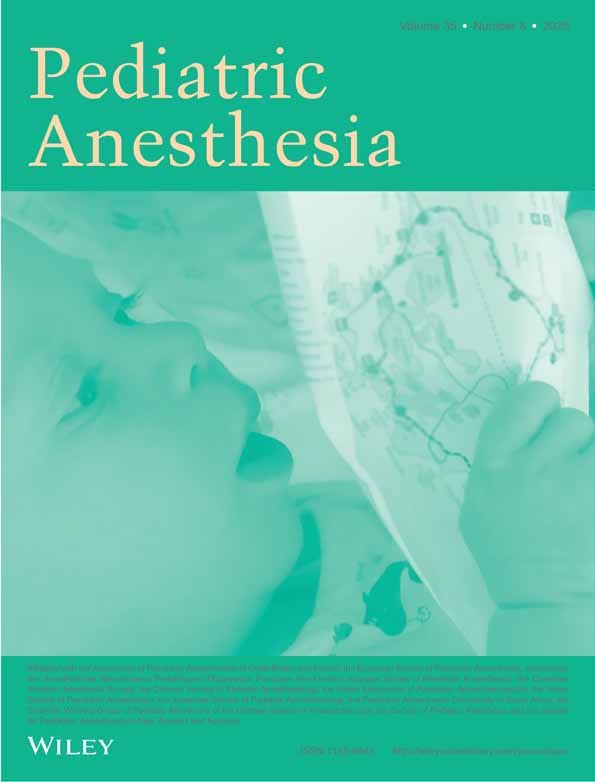Hydromorphone Versus Fentanyl-Based Induction of Anesthesia for Postoperative Pain and Emergence Delirium in Children Undergoing Strabismus Surgery: A Randomized, Double-Blind Comparative Study
Funding: This study was supported by the Noncommunicable Chronic Diseases-National Science and Technology Major Project (2023ZD0501801 to R.Z. and G.C.), the Sichuan Province Health Research Project (ZH2025-103 to T.Z.), Key Project of Educational Teaching Reform Research in Sichuan Province (YJGXM24-B029, GSSCU2024027 to G.C.), and the CAMS Innovation Fund for Medical Sciences (2023-I2M-C&T-B-122 to T.Z., 2023-I2M-C&T-B-121 to G.C.).
Qiyuan Huang and Yongwei Su contributed equally to this work.
ABSTRACT
Purpose
This study aimed to investigate the effects of hydromorphone and fentanyl-based induction of anesthesia for immediate postoperative analgesia in pediatric patients.
Patients and Methods
This was a prospective, double-blind, randomized controlled trial. 186 preschool children aged 3 to 7 years old scheduled for strabismus surgery were randomized to receive hydromorphone 0.02 mg/kg (hydromorphone group; n = 80) or fentanyl 3 μg/kg (fentanyl group; n = 80). The primary outcome was the Face, Legs, Activity, Cry, and Consolability (FLACC) pain score at extubation. Secondary outcomes included the incidence of postoperative emergence delirium (ED), the proportion of subjects who received rescue analgesia, Ramsay sedation scores, heart rate, mean arterial pressure, and SpO2 in post-anesthesia care unit, and perioperative adverse events.
Results
From November 10, 2020, to May 26, 2022,186 patients at West China Hospital were enrolled, 153 (37.5% male) of whom received administration of fentanyl (n = 76) or hydromorphone (n = 77). The hydromorphone group showed lower FLACC pain scores at the time of extubation (median [IQR], hydromorphone vs. fentanyl, 0 [0–0] vs. 0 [0–1], Mann–Whitney U = 2457.0, Z = -2.469, p = 0.014). The incidence of ED in the hydromorphone group was statistically lower than that in the fentanyl group (75.3% vs. 93.4%, p = 0.004, relative risk and 95% CI was 0.8 (0.7, 0.9)). Other secondary outcomes were comparable between the two groups.
Conclusion
Hydromorphone administration during induction may improve postoperative pain control and reduce the incidence of ED in PACU after pediatric strabismus surgery.
Trial Registration
This study was registered at the Chinese Clinical Trials Register (www.chictr.org.cn) (number: ChiCTR2000039555, date of registration: 31/10/2020)
Conflicts of Interest
The authors declare no conflicts of interest.
Open Research
Data Availability Statement
The datasets generated during and/or analyzed during the current study are available from the corresponding author upon reasonable request.




